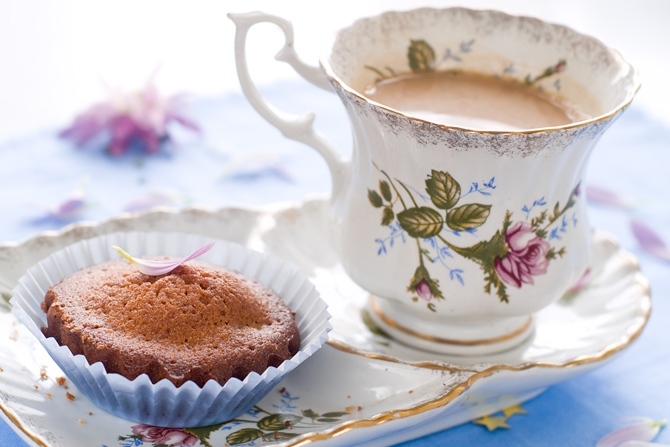

If there's one thing the Chinese and British have in common, it's our love of tea. While Chinese tea can be enjoyed at teahouses, dim sum restaurants and home, the British tea culture is just as dominant in the United Kingdom. But how did the British tea culture come about, and what defines a good cup of English tea?
Put the Kettle On
"The British were slow in the uptake of tea," said Stephen Twining, Director of Corporate Relation at Twinings, a three-century-old tea marketer and a Royal Warrant-holder since 1837. "The official entry of tea in Britain was 1662, when the Portuguese queen of Charles II introduced the act of drinking tea, which spread throughout the court. It's important to note, however, that tea was initially consumed only by the aristocratic society because of the high tax imposed on it – think of the tax as HKD2,000 for 100g of tea. The tax made tea unaffordable for most people, but in hindsight it may have helped tea in the long run in making it an iconic drink."
The British tea culture wasn't popularised until 1784, when the then-Chairman of Tea Dealers Association made a proposition to reduce tax on tea, arguing that could bring in more revenue for the government as a colossal amount of tea was being smuggled or adulterated at the time anyway. The tax went down, and tea became a part of everyday life for many Britons.
"Drinking tea is absolutely ingrained in the British culture, especially in the hospitality aspect – you put the kettle on when people come by for a visit, and you put the kettle on when good things or bad things happen," explained Stephen. "Tea seems to have the power to cool you down when you're hot, warm you up when you're cold, calm your nerves when you're excited, and cheer you up when you're down in the dumps."
Good Manners and a Good Cuppa
When it comes to tea etiquette, one can't avoid mentioning the English afternoon tea, the idea of a refreshment in between lunch and dinner invented by Anna Russell, the Duchess of Bedford in the 1830s. "The idea was well received as the afternoon tea is where light refreshment of food and beverages were served, and it's good for the soul because you get to have a good chat and you're able to relax, which can enable you to better deal with things in the world. Having a tea break, in other words, is treating yourself better," said Stephen.
"The main part of the etiquette is that no politics or any topics that get people hot and bothered are allowed, because tea time is meant to be a relaxing time, where people have good, light talks."
According to Stephen, there is no fixed style or rule for a good cup of British tea, as tea drinkers usually rely on tea makers to give it style and personality, like there are no rules on the time to have tea and the types of food to have. Yet there are tips on making the perfect cup of English tea. "The English tea is a full-bodied tea and 90% of the tea drunken in Britain is black tea. Quality tea is blended carefully to deliver a continuity of flavour, but there are still many pitfalls in making a good cup of tea. The way you prepare your tea and the tea leaves you use would decide on the quality of your tea – for black tea, we use boiling water at 100°C and brew the tea for one to two minutes to get its full flavour. And while milk is fine, sugar may numb and mask the taste of the tea as there are already many flavours in the tea, blended for their different characteristics."
Tea is for Enjoyment
While the British tea culture does come with basic etiquettes, Stephen's advice is for everyone to personalised their own. "By all means create your own style based on the culture of tea. Some of London's hotels are serving sushi with tea and I think that's a good idea, as long as the refreshments served are delicate, tasty food, be it cucumber sandwiches, scones, small cakes or other finger food."
And it's precisely the culture of tea that makes it a good hobby for retirees. "Tea appreciation and tea time are a good hobby for anyone," said Stephen. "Because it's a wonderful occasion where older citizens get together to chat about the world, share their home-cooking, and socialise in a relaxed environment."
Special Thanks:
Stephen Twining, Director of Corporate Relation at Twinings